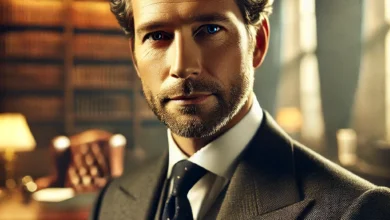Jacob Widman New York Case: A Detailed Exploration of Legal Implications and Impact

Introduction to the Jacob Widman New York Case
The Jacob Widman New York Case has recently become one of the most talked-about legal matters, particularly in New York. Its prominence is not just because of the individuals involved but also because of the broader societal and legal issues it has raised. As we delve into this case, it’s crucial to understand the events leading up to it, its critical legal components, and how it reflects on the state’s justice system. What are the facts? How has the case unfolded, and what lessons can be drawn from it? This article aims to provide answers to these questions and offer a thorough examination of the Jacob Widman New York Case.
Background of the Jacob Widman New York Case
The Jacob Widman, New York Case, emerged from complex legal circumstances. Jacob Widman, a New York resident, was at the center of a controversy that has since evolved into a high-profile legal battle. It involves elements such as criminal justice reform, civil rights, and procedural law—making it much more than a local affair.
The case’s origins date back several years, when Widman was accused of various offences. What made this case stand out was not just the charges themselves but also how the legal proceedings played out. Several legal experts have pointed out that the case exposes significant gaps in the state’s criminal justice system, mainly how evidence is handled and how defendants’ rights are upheld.
Legal Issues in the Jacob Widman New York Case
The Jacob Widman New York Case highlights multiple legal issues, each critical in shaping the case’s outcome. These issues include:
- Due Process: One of the core concerns of the case revolves around due process, which ensures that every defendant receives a fair trial. Widman’s legal team has claimed that inevitable procedural missteps occurred, potentially infringing his right to a fair trial.
- Rights of the Accused: In cases like this, the rights of the accused are often under scrutiny. In this case, the defence has argued that certain constitutional protections, such as the right to counsel and protection against unlawful search and seizure, may have been violated.
- Evidentiary Concerns: How the evidence was gathered and presented in the Jacob Widman New York Case has become a pivotal issue. There have been claims of mishandling critical pieces of evidence, which has led to questions about the integrity of the prosecution’s case.
- Public Opinion and Media Influence: As with many high-profile cases, media coverage has shaped public opinion. This raises the issue of whether a fair trial can be obtained when public sentiment, shaped by the media, is overwhelmingly in favour of one side.
The Role of Law Enforcement
Law enforcement’s role has been questioned in the Jacob Widman New York Case. There have been multiple claims of improper conduct, which include:
- Use of Force: One of the main controversies in the case relates to the alleged use of excessive force during Jacob Widman’s arrest. While law enforcement maintains that their actions were justified, the defence has claimed that Widman’s rights were violated during the process.
- Investigative Procedures: The defence has also questioned the investigative procedures used in the case, especially regarding evidence collection. Claims of tampering and improper handling have surfaced, calling the validity of the prosecution’s case into question.
The law enforcement response has drawn both support and criticism from various sectors. Those in support argue that the actions taken were appropriate given the circumstances. However, critics say this case demonstrates a need for significant reform in how law enforcement interacts with suspects, particularly regarding upholding civil liberties.
The Judicial Process in the Jacob Widman New York Case
The judicial process in the Jacob Widman New York Case has been long and fraught with complications. Several hearings, motions, and appeals have extended the case, causing delays and significant frustration for all parties involved.
- Pre-Trial Motions: Widman’s legal team filed multiple pre-trial motions before the trial began. These motions ranged from requests to suppress evidence to challenges regarding the constitutionality of specific charges. Many of these motions were highly contested and became focal points of the case.
- Jury Selection: Given the widespread media coverage of the case, selecting a fair and impartial jury proved difficult. The prosecution and defence struggled to find jurors who had not already formed an opinion based on the coverage. This process highlighted the challenges of conducting high-profile trials in the internet age and 24/7 news cycles.
- Appeals: Even as the case proceeded through the courts, multiple appeals were filed. These appeals addressed procedural errors, evidence handling, and potential bias in the judicial process. Each appeal has added another layer of complexity to an already intricate case.
Public Reaction to the Jacob Widman New York Case
Public reaction to the Jacob Widman New York Case has been highly polarized. On one hand, some believe that Widman has been unfairly targeted and that his case exemplifies systemic issues within New York’s legal system. They argue that Widman’s rights were violated and that the case should be dismissed on these grounds.
On the other hand, some believe that law enforcement and the courts acted appropriately and that Widman should be held accountable for his actions. This divide in public opinion has led to protests, online campaigns, and an increased focus on criminal justice reform in the state.
Social Media and Its Role
Social media has played a significant role in shaping public opinion around the Jacob Widman New York Case. Platforms like Twitter, Facebook, and Instagram have been flooded with posts supporting Widman or calling for his conviction. Hashtags related to the case have trended multiple times, and various interest groups have used the case as a rallying point for broader societal issues, such as police reform and civil rights.
This online discourse has further complicated the case, as both sides of the debate have used social media to present their version of the truth. This constant stream of factual and speculative information has made it challenging for the public to differentiate between genuine updates and misinformation.
The Impact of the Jacob Widman New York Case on Legal Reforms
The Jacob Widman, New York Case has significantly impacted discussions around legal reforms in New York State. Among the critical areas of focus are:
- Criminal Justice Reform: Advocates for criminal justice reform have pointed to this case as evidence of the need for change. They argue that the current system is flawed, particularly when protecting the rights of the accused.
- Law Enforcement Accountability: In this case, the alleged misconduct by law enforcement officers has led to renewed calls for increased accountability and transparency within the police force. Activists are pushing for the implementation of body cameras, stricter guidelines on the use of force, and better oversight of police actions during arrests.
- Judicial Transparency: The case has also raised questions about the transparency of the judicial process, particularly in high-profile cases. Legal experts are calling for reforms that would make court proceedings more accessible to the public and ensure that defendants receive fair trials even when media coverage is extensive.
Final Thoughts on the Jacob Widman New York Case
The Jacob Widman, New York Case, is a complex and multifaceted legal matter that has raised important questions about the criminal justice system in New York. From concerns about due process and evidentiary handling to the role of law enforcement and media influence, this case has highlighted the need for ongoing reform.
As the case unfolds, it remains to be seen what its outcome will be and what its lasting impact will be on the legal landscape. What is clear, however, is that the Jacob Widman New York Case will serve as a crucial reference point for discussions on criminal justice reform, civil rights, and the future of law enforcement practices in New York and beyond.
Frequently Asked Questions (FAQ)
Q: What is the Jacob Widman New York Case?A: The Jacob Widman New York Case is a high-profile legal case that involves charges against Jacob Widman, a New York resident. It has sparked debates over due process, law enforcement practices, and media influence.
Q: What are the legal issues in the Jacob Widman New York Case?A: The legal issues include concerns about due process, the rights of the accused, evidence handling, and law enforcement conduct during the investigation and arrest.
Q: How has public opinion shaped the case? A: Public opinion has been highly polarized, with some supporting Widman’s defence, arguing that his rights were violated, while others believe law enforcement acted appropriately. Social media has played a significant role in shaping this discourse.
Q: What is the potential impact of the case on legal reforms?A: The Jacob Widman New York Case has reignited discussions around criminal justice reform, law enforcement accountability, and judicial transparency in New York State.
Sources:




